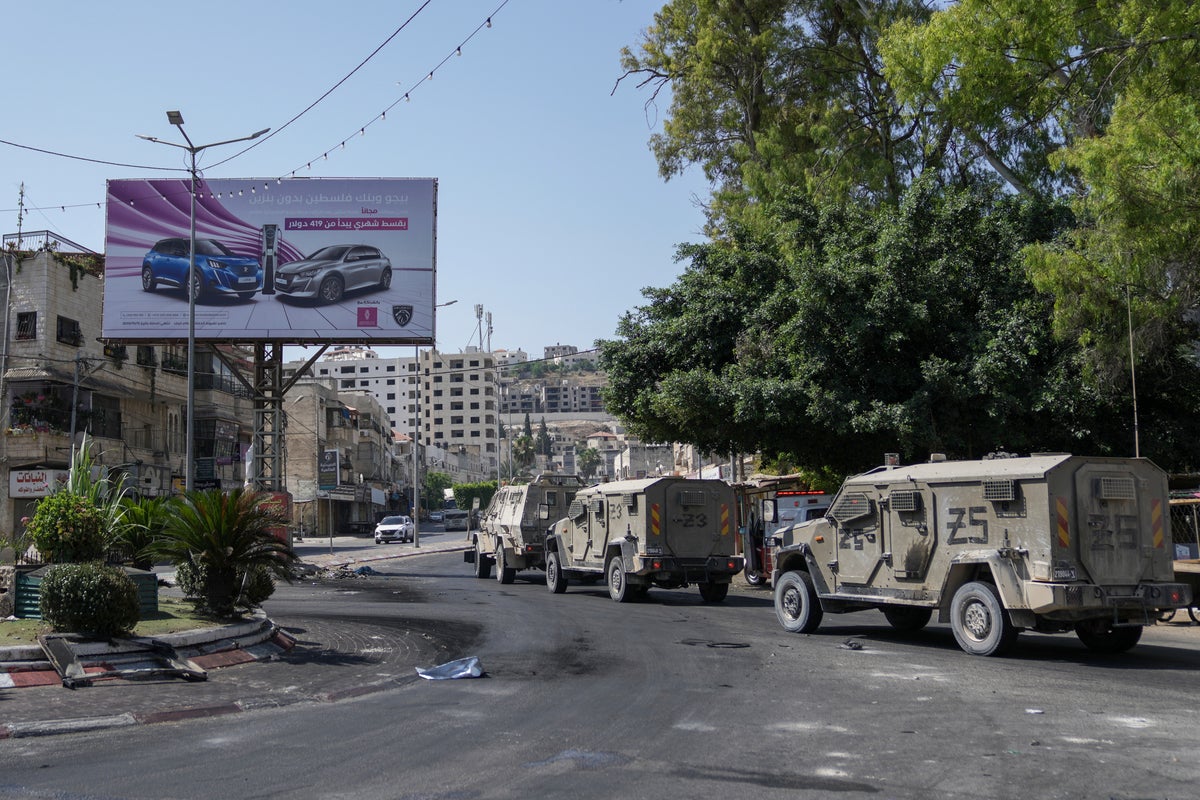
The Israeli military launched one of its largest operations in the occupied West Bank for two decades on Monday, carrying out drone strikes and sending in hundreds of troops and armoured bulldozers to hit what it claims are “terrorist infrastructure targets and armed gunmen in the Jenin camp”.
Israeli prime minister Benjamin Netanyahu said the area had become “a safe haven for terrorists” and declared: “We are putting an end to this”.
The Israeli Defence Forces (IDF) said its soldiers had found “explosive devices, weapons and military equipment” in a mosque at the camp, alleging that 50 per cent of the local population is affiliated with Palestinian militant organisations like the Jenin Brigades.
The raid on the refugee camp near the city of Jenin sparked fierce gun battles, leaving at least 10 Palestinians dead, 100 people injured and causing thousands more to flee the area, which the IDF said it was allowing them to do unimpeded.
The Palestinian Red Crescent rescue service said as many as 3,000 people had left as of midnight on Monday and that the exodus is expected to continue.
“The humanitarian situation is very difficult and is getting worse. All the roads are closed, no ambulances, vehicles or people are allowed to pass into the camp or inside its alleyways,” said Mahmoud al-Saadi, the group’s director in Jenin.
“The streets and infrastructure are completely destroyed, the water and electricity are cut all across the camp.”
The United Nations Relief and Works Agency for Palestine Refugees in the Near East (UNRWA) added that many camp residents were in need of food supplies, clean drinking water and milk powder for infants.
Israel has said it is only intent on hitting military targets but reports on the ground indicate civilian infrastructure has also been damaged and the Al Araby TV Network has alleged that two of its journalists were “directly targeted” by gunfire.
Mustafa Sheta, director of Jenin’s Freedom Theatre and community centre told The Independent: “It started at midnight with bombing and then large groups of soldiers attacked Jenin from different entrances simultaneously.
“Later they used bulldozers to cut a path through the neighbourhood. Bulldozers came to the street, either side of the theatre – we don’t know the extent of the damage.”
Israeli defence minister Yoav Gallant said its operation in Jenin was “proceeding as planned” but gave no indication as to when the incursion would end.
“It could take hours, but it could also take days. We are focused on our goals,” an Israeli military spokesman said, when asked to offer a timeframe on its activities.
A map to show the location of the Jenin refugee camp— (The Independent/Datawrapper)
Human rights groups including Amnesty International have meanwhile reacted to the intervention by accusing Israel of “recklessly endangering desperate and marginalised people”.
“Coming after Israel’s massive five-day offensive in Gaza in May, the Jenin attack seems to show that the Israeli military is increasingly abandoning what little restraint it previously had and wilfully endangering the lives of Palestinian civilians, including children, older people and people with disabilities,” said Kristyan Benedict, Amnesty UK’s crisis response manager.
Hamas, which governs in Gaza, said on Monday that it was ready to intervene if Israel goes too far and “persists in its aggression” in Jenin.
“Our people and their resistance everywhere know how to respond to this barbaric aggression,” Hamas leader Ismail Haniyeh said in a statement.
“We call on our people throughout the West Bank to stand by Jenin and defend its people in order to thwart the enemy’s plan.
“The blood being shed in Jenin will determine the nature of the next stage in all directions.”
For its part, the White House has said via a spokesman: “We have seen the reports and are monitoring the situation closely. We support Israel’s security and right to defend its people against Hamas, Palestinian Islamic Jihad, and other terrorist groups.”







